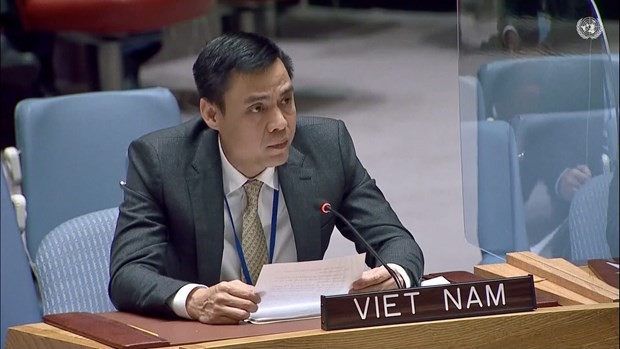
Vietnam always supports UN’s humanitarian efforts: Ambassador
Latest
 |
| Ambassador Dang Hoang Giang (Source: VNA) |
Addressing the three-day UN Economic and Social Council (ECOSOC) Humanitarian Affairs Segment, which concluded on June 23, Giang said that in 2022, Vietnam has donated 500,000 USD to the UN’s humanitarian funds and 1 million USD to the COVID-19 Vaccines Global Access (COVAX) mechanism.
Vietnam has also coordinated with other ASEAN member states, through the ASEAN Coordinating Centre for Humanitarian Assistance (AHA) and UN offices, to provide humanitarian assistance for Myanmar people.
The diplomat affirmed that peace and stability are prerequisites to ensure safe and uninterrupted humanitarian access for those in need.
Humanitarian activities should be based on the principles of neutrality, impartiality and independence, upholding the UN Charter and international humanitarian law, in accordance with the conditions, needs and circumstances of each country, he stressed.
He said that countries have the most important roles and responsibilities in addressing the root causes of conflicts and humanitarian crises in a comprehensive way; and should strengthen their capacity to prevent diseases, reduce climate and environmental risks, strengthen early warning systems and preparedness, and increase financing for adaptation and resilience.
The Vietnamese Ambassador also emphasised the need to strengthen coordination and build trust between UN offices and Governments and stakeholders in action, finance and data sharing to promptly respond to emerging global humanitarian challenges.
He also took the occasion to send his deep condolences to the Afghan people affected by the strong earthquake in Paktika province on June 22.
UN Secretary-General António Guterres stated that global megatrends are converging into a mega-crisis of conflict, climate disruption, hunger and the rising cost of living.
“These challenges require us to step up our efforts to support a strong, flexible, well-resourced humanitarian system that is better equipped to reach and protect even the most isolated and marginalized people,” he added.
ECOSOC President Colin Vixen Kelapile emphasized that women and girls are more affected during humanitarian crises, such as by gender-based violence, and limited access to education and development opportunities.













